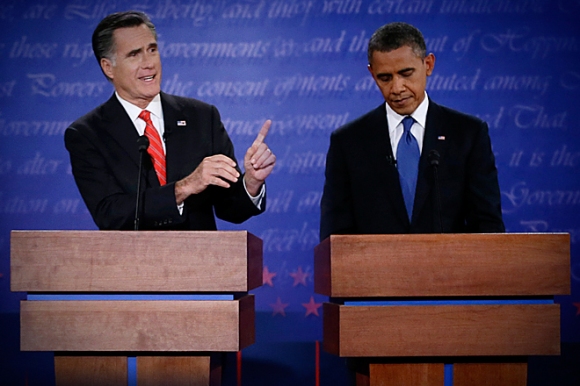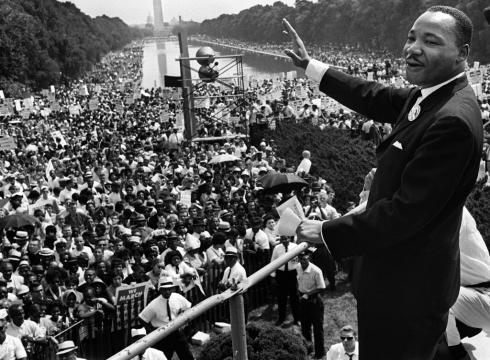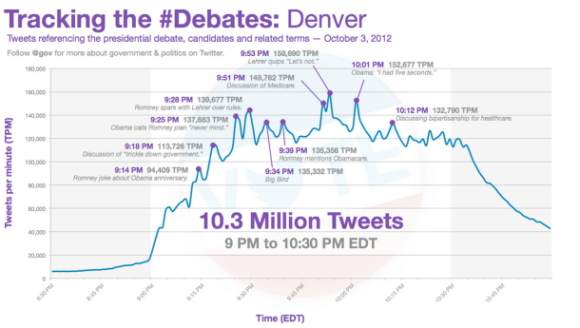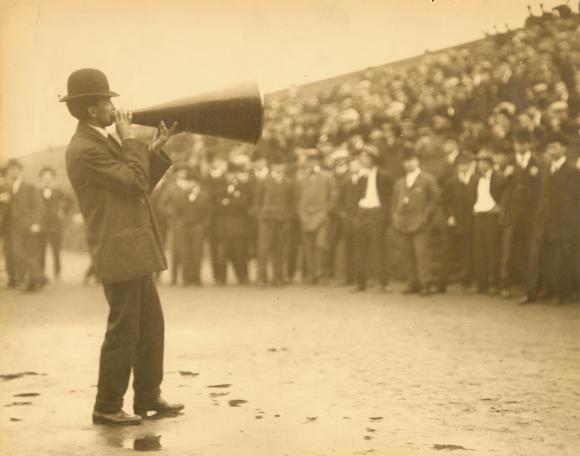If most people remember last October’s first presidential debate at all, it’s probably for President Obama’s oddly lackluster performance. But for those who closely track political, technological and sociological changes, the night was a watershed moment in communication. Why you ask?

The first presidential debate between former Massachusetts Gov. Mitt Romney and President Barack Obama in Denver, 2012. (Credit: Salon.com)
That debate was the most Tweeted event in U.S. political history, and one of the most Tweeted events of all time.
Does that matter? It’s a stretch to say it matters for the same reasons as Gutenberg’s moveable type machine, but it does represent a leap towards a new way of communicating. One that’s indirect, instantaneous and often limited to 142 characters.
This month, we interviewed people who work with and study social media. And even with recent changes to social media, they’ve shown us that we’ve only begun to scratch the surface of its potential.
We want to thank the people who took the time to discuss social media with us, and show us how it’s changing our participation in an ever-changing world.
Warren Webster, co-founder of Patch.com.
Scott Lewis, CEO of Voice of San Diego.
Dr. William J. Ward, social media professor at Syracuse University.
David Jones, CEO of Havas Worldwide and author of Who Cares Wins.
Our experts shared a wide range of innovative examples of social media in action, from hyper-local news to corporations giving back to the Israeli Defense Forces and Middle Eastern protestors . If there is one common thread joining these together, it’s that this technology has elevated your voice to an unprecedented level.
The old filters that used to edit and abridge stories are rapidly fading away. The most successful movements are still comprised of groups, but those groups are made of individuals who’ve been given their own platform by these “social” resources like never before.
Social media shows that your one human voice can be a powerful instrument. In the next month, we’re moving from how your voice sounds when it’s tweeting to its impact when it’s speaking.
With a lifetime of daily practice, we should all be Mozarts of the larynx by the time we’re adults. And yet, even the best of us become tongue tied or terrified when faced with an audience to listen to what we have to say.
We’re delving into that most basic – and yet fear inducing – form of communication: Public speaking.

Dr. Martin Luther King, Jr. leading a civil rights march on the National Mall in 1963. (Credit: USA Today)
From the soapbox to the National Mall, public speaking has moved ideas that moved the world, and we want to find out how it’s done. We’ll get tips from Toastmasters International’s World Champion and others, as we try to unlock the secret to compelling an audience with only the sound of your voice.
Thank you for reading. Be sure to share your thoughts in the comments section, or tweet us @collaborateinc in the months to come.
Elizabeth Malloy, Associate
Collaborative Services, Inc.



Recent Comments